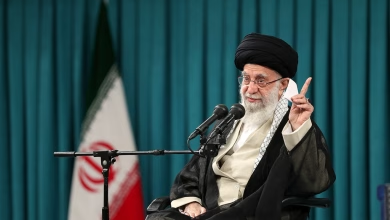Australian Northern Territory Resumes Jailing 10-year-olds

- NT lowers age of criminal responsibility to 10
- Move reverses previous reform, sparks controversy
- Critics warn of disproportionate impact on Aboriginal children
Children as young as 10 years old in Australia’s Northern Territory (NT) will soon face the possibility of incarceration, as the government has decided to lower the age of criminal responsibility. This move comes amid ongoing debates about youth crime and the treatment of young offenders.
Previously, Australian states and territories faced pressure to raise the age of criminal responsibility from 10 to 14, aligning with the recommendations of the United Nations and other developed nations. In a notable shift, the NT became the first region to raise the age to 12 last year. However, the newly elected Country Liberal Party government, which came into power in August, has argued for a reversal of this change, stating it is necessary to combat rising youth crime rates.
Chief Minister Lia Finocchiaro emphasized that lowering the age back to 10 will ultimately protect children. She stated, “We took to the election a very clear plan around lowering the age of criminal responsibility so that we can capture these young people early, work out what’s going on, and turn their life around.” The government believes that criminalizing younger children will allow courts to intervene and address the underlying causes of their behavior.
Critics, including doctors, human rights organizations, and Indigenous groups, have raised concerns about this decision. They argue that research shows such laws will not effectively reduce crime and will disproportionately impact Aboriginal and Torres Strait Islander children, who already face significant over-representation in the juvenile justice system. The NT currently jails children at a rate 11 times higher than any other jurisdiction in Australia, with nearly all those incarcerated being Indigenous.
The NT government has pointed to a recent string of violent incidents and a youth crime crisis that has led to youth curfews in cities like Alice Springs as justification for their stance. Alongside the change in criminal responsibility, the government will also tighten bail rules.
Research has consistently indicated that incarcerating children can increase the likelihood of reoffending and negatively affect their health, education, and future employment opportunities. A report from the Australian Human Rights Commission earlier this year criticized the “tough on crime” rhetoric driving such policies, suggesting that funds used for imprisonment should instead be directed toward support services.
As the NT parliament debated the new bill, approximately 100 protesters gathered outside, carrying signs with messages like “10-year-olds still have baby teeth” and “What if it was your child?”. Shahleena Musk, the NT’s Children’s Commissioner, highlighted the “structural racism” present in the youth justice system, noting that Aboriginal children face harsher treatment compared to their non-Aboriginal peers.
Musk stated, “I accept that people are fearful in our communities, and crime has been quite prominent in the media and social media. But if we rely on the evidence and start to work to address the root causes of crime, we’re going to have less of these kids reoffending.”
Concerns have also been raised that this move could hinder progress toward raising the minimum age of criminal responsibility in other states and territories. While the Australian Capital Territory has set the age above 10, Victoria has passed legislation to do so, effective next year, and Tasmania aims to raise the age to 14 by 2029.






